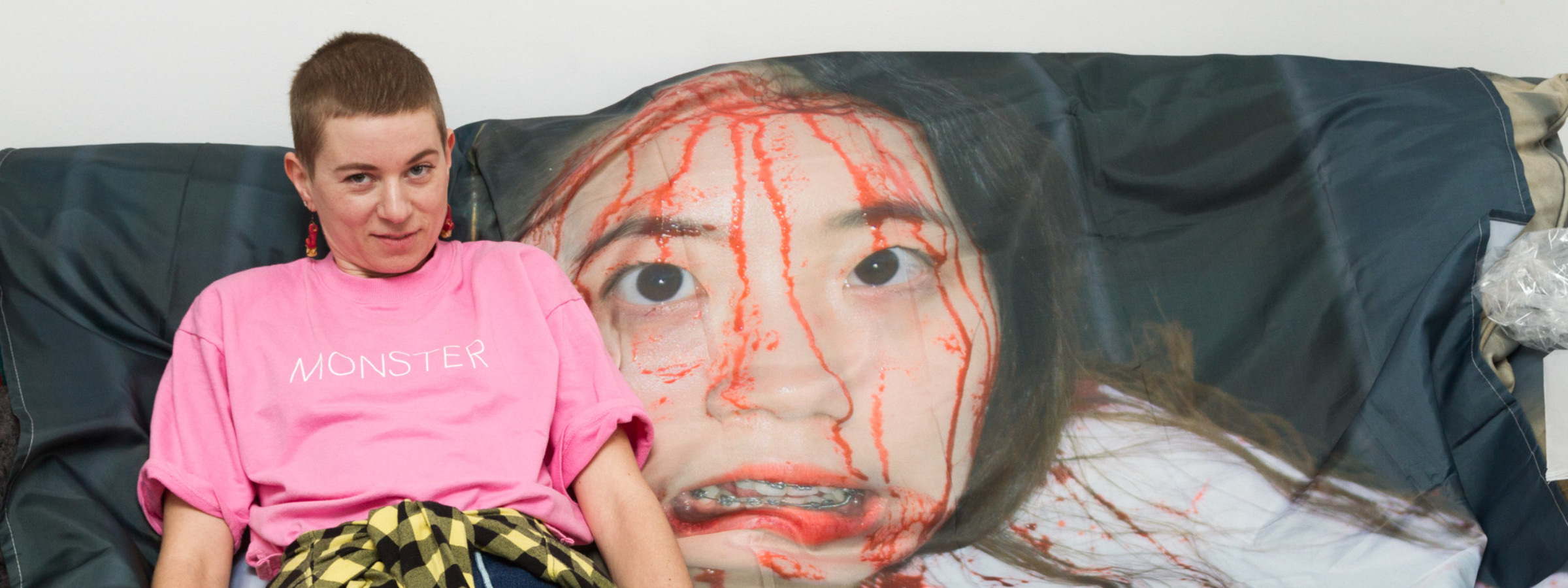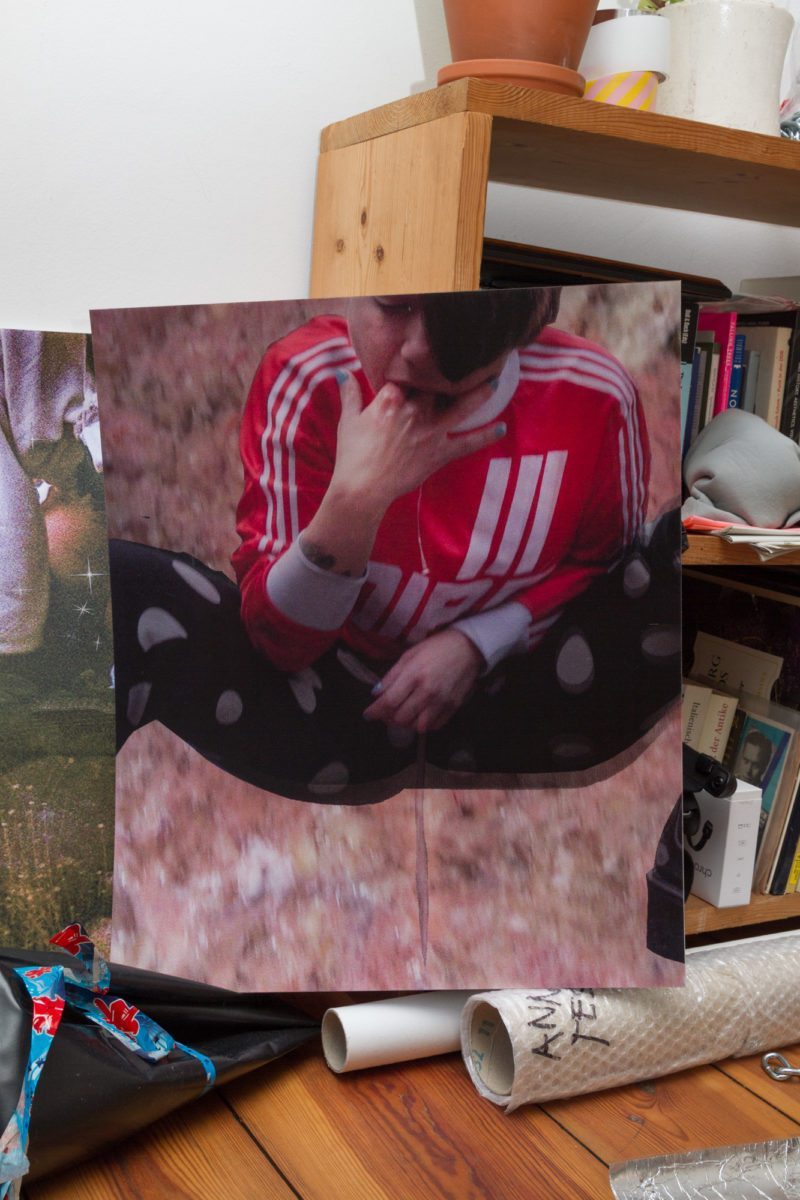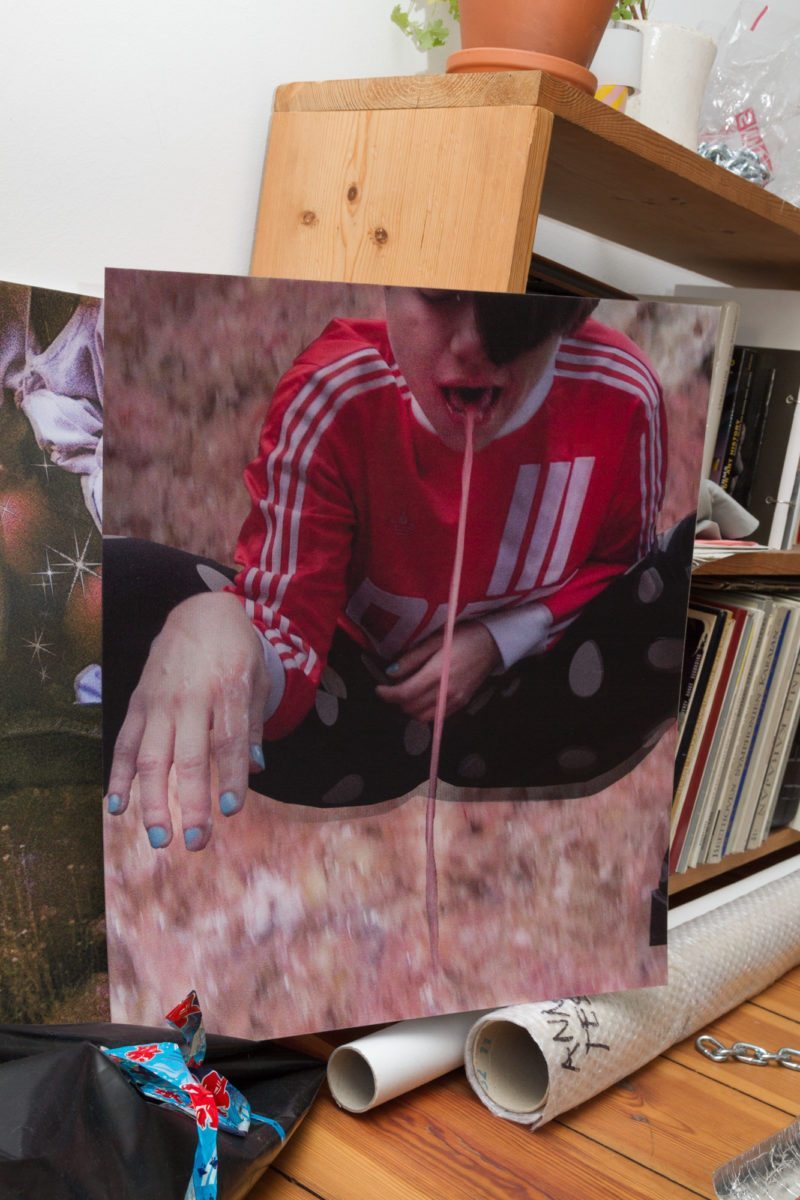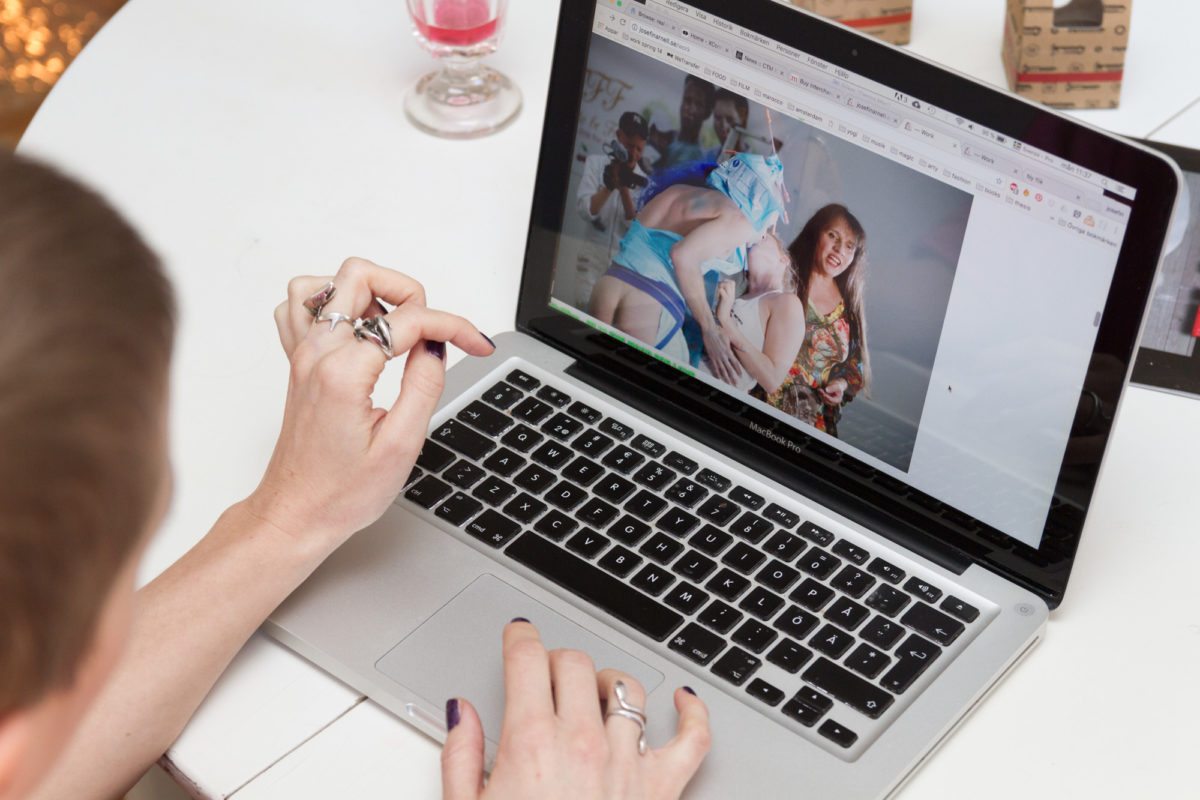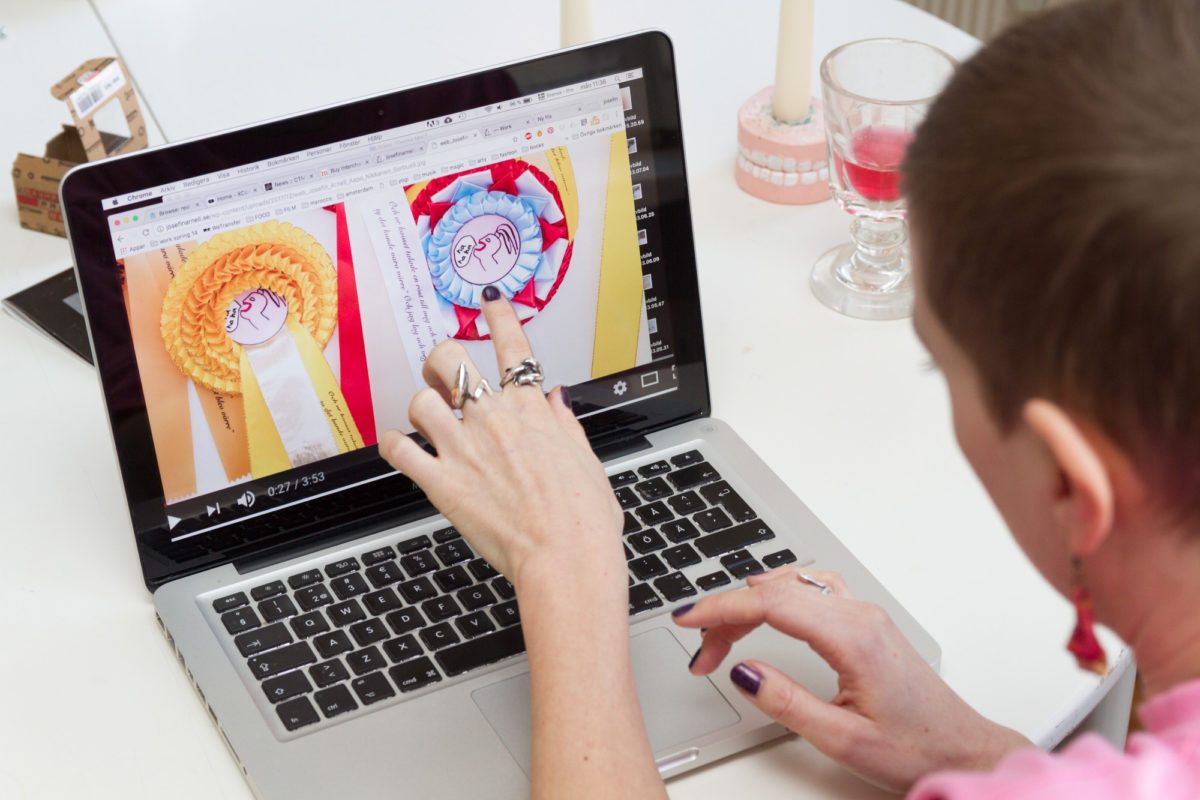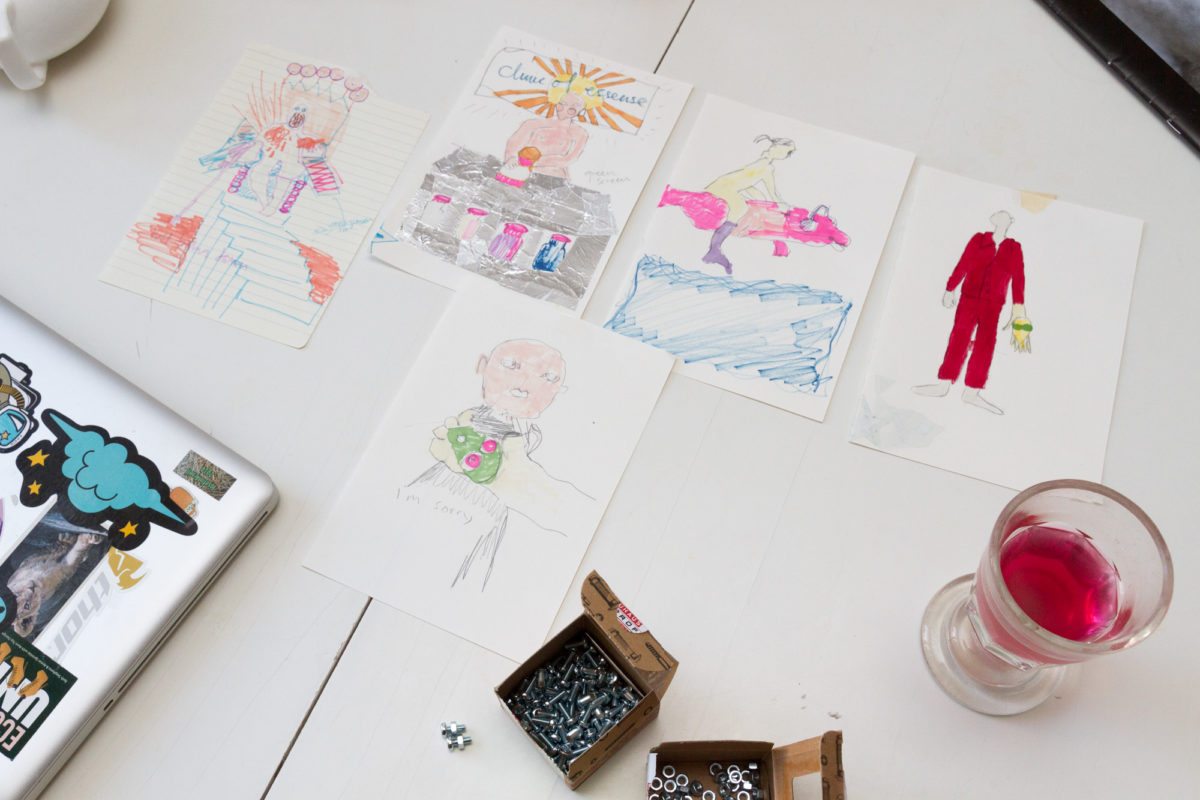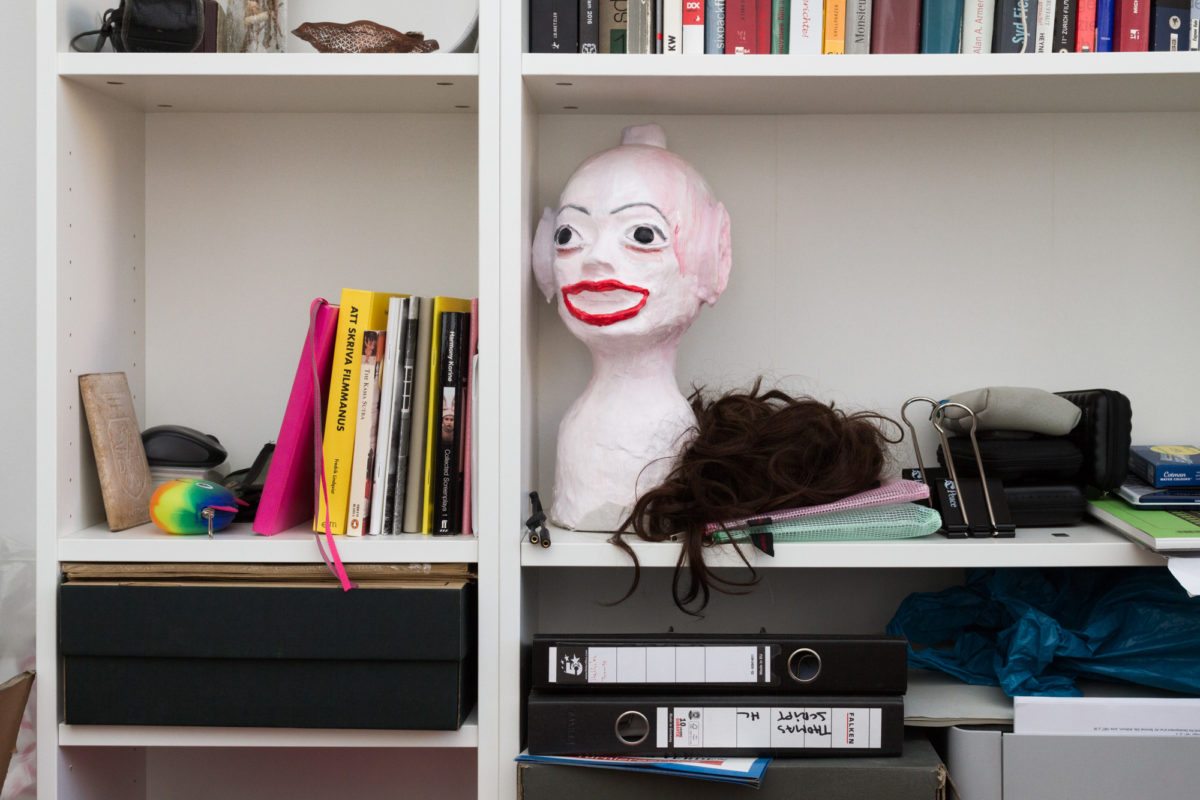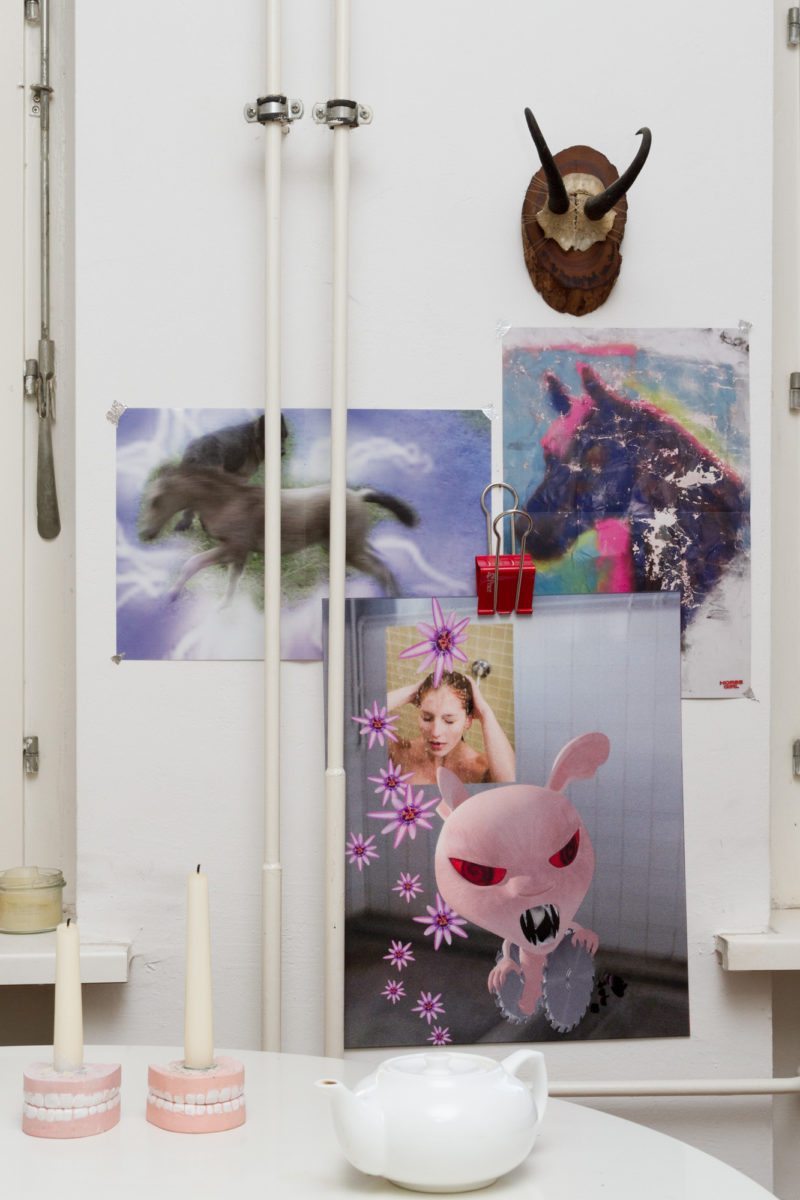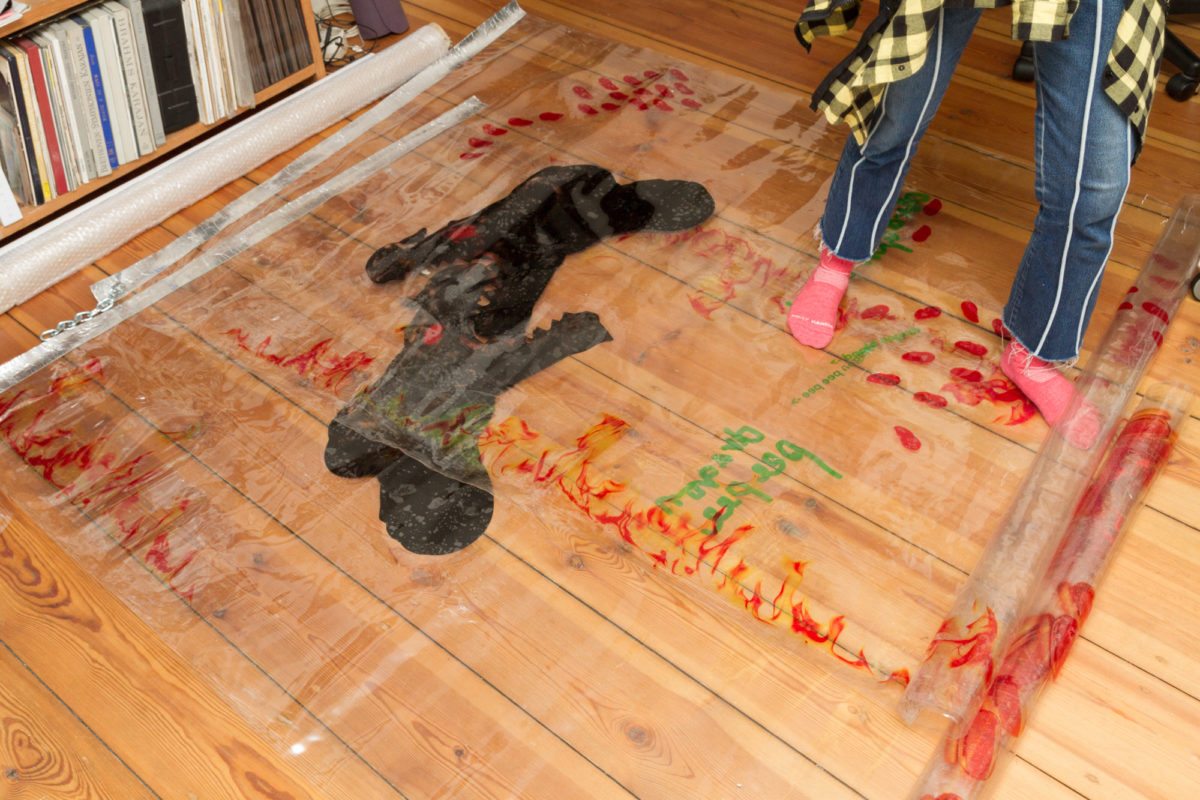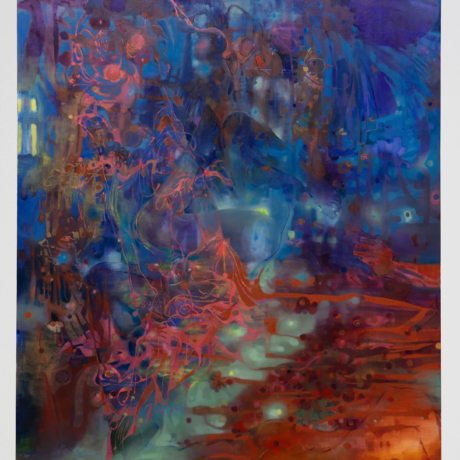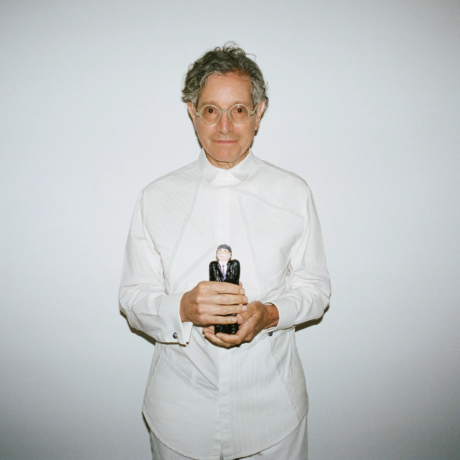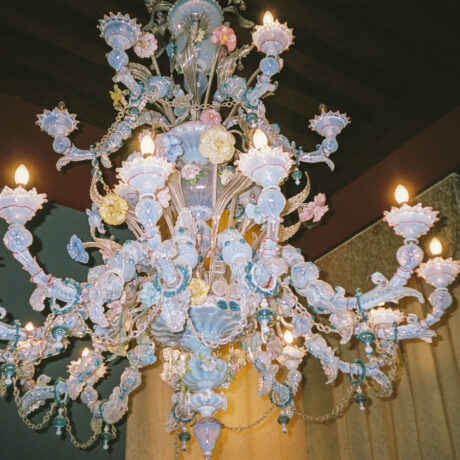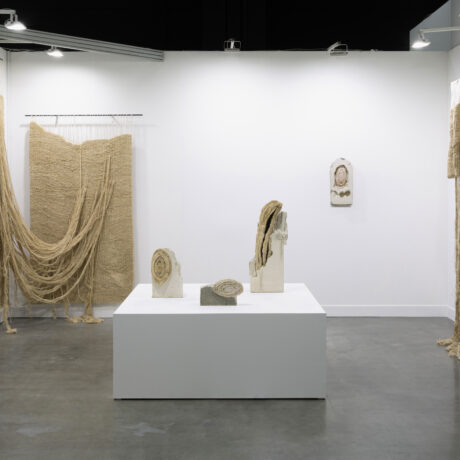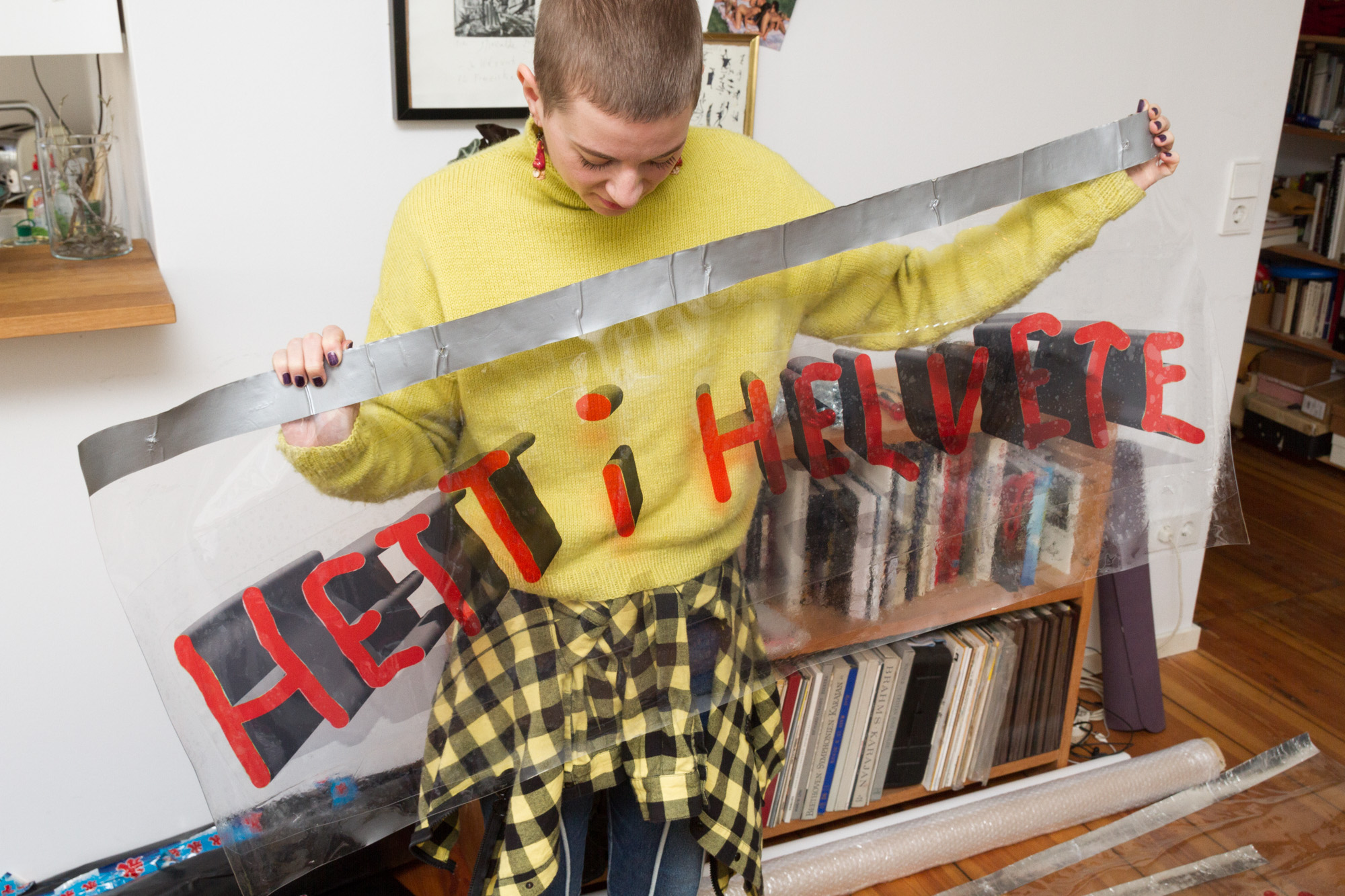
Many of your works are collaborative––where did it all start for you?
I’m always setting up new collaborations; I think it’s because I’m a Gemini. My first was called Infernal Runners, and it was a perfume. All my collaborations have great names. Lush Bush is another that comes to mind (started in 2012), and I have continually worked with Max Göran since 2014. The relationship was initiated when I wanted to make a forest porno––so we did it together. We later went on to create our artist-collective HellFun.
It hasn’t always been other artists though, has it?
2015 was a bit different: I collaborated with my Mum. She’s an alcoholic, so I decided to take her to Brazil to a famous healer called John Of God, who I’ve been obsessed with for a long time, and make a film. I’ve been obsessed for even longer with healing my mother. It turned out that another artist, Natasja Loutchko, was making a similar work––her mother is an addict too, you see. I thought this was amazing, so we conjoined and created Horsegirl, which is my latest collaboration.
How did your mother relate to the body of work?
I started to create various characters, as I usually do with my work. These characters have endless monologues rather than conversations, but they interlace in a sort of meta-sphere to create a script. One particular character was a mothership looking down from the sky like a UFO, and it seemed obvious to me to cast my mother into this character. She seemed scared at first, as she didn’t really know what I was going to do. Once I started to film, it turned out she loves acting! She is a great performer. This makes perfect sense to me though, because she has been an alcoholic my whole life and, in a sense, she has always lived a double life. Performing sobriety.
“I started to understand that I’m just obsessed with the idea of motherhood and mothers, not necessarily my own mother per se.”
Which side of her did you, as a director, want to reveal?
Everything inside the film became a performance, real or acted. Whatever real means! But I felt kind of nasty during the filming because I was always trying to reveal this realness, this bareness, because I saw this as the true emotional position.
Over the years, has your mother become less of herself and more symbolic to you?
Yes, now she has become more of a character. I started to understand that I’m just obsessed with the idea of motherhood and mothers, not necessarily my own mother per se. I started writing huge pieces on a series of mothering figures, which led into a poem about the perfect method of giving birth. I think perhaps it’s more apt to say that these poems are commercials for birthing. They centre on the mother giving the best performance of her life, in order to bring about new life.
And how do these experiences materialize into your object-based practice?
The drawings, writing and sculptures are a part of my practice that I thoroughly enjoy. They are my escape from the documentary side. I often find that they feed and push the work further, leaving me with fragments that I can mix into animations. With them, I can find new ways of viewing beyond the camera lens.
The environment of the gallery and the settings that you choose to shoot in are very different––the former is a very controlled space, while the latter is all about being unstaged, right?
Yes, all the works stem from different surfaces–– an aesthetic one and a documentary one. I’m always fighting with my own perfectionism and trying to break apart the ideal version, which is likely to be more controlled or staged.
Perfectionism is interesting because so much of your work centres around the imperfect parental structures that you have been subjected to. Even the notion of perfection is learned by the society we live in, rather than an absolute.
In reality, it’s all a story of escape. Yet perfection is everywhere; I believe we are all trying to be perfect but we have different ideas of perfection so it negates itself. We are all perfectly imperfect.
HellFun’s piece In The Mood for Love seems to explore this idea. The five characters appear to be both collectively mothering and ultimately egotistical.
HellFun’s approach to scripting these characters is rather paradoxical: they always appear on stage as a collective, but they are tied to their own bubbles that they are unable to burst even by utilizing speech. The characters just end up having these monologues rather than building a collective experience. They are all self-obsessed and have very little understanding of anything beyond themselves.
“I’m always fighting with my own perfectionism and trying to break apart the ideal version, which is likely to be more controlled or staged.”
Do these characters represent the id, unaware of others and unresponsive to the demands of reality?
Yes, they are the lost children forced into growing up. They all come from a private sperm bank.
Really?
Yes, it’s a very complicated storyline. They come from Nilla and Tony, who are the alter-egos of me and Max. We decide that we want to take over the world. We take our eggs and sperm and give it to surrogates, because we have no interest in carrying the children ourselves. We say that they have to pay us because it is an honour to carry these children. Their payment also includes childcare, so it’s an inclusive package that they buy from us to host our children. It’s a great deal because these are our children but someone else is paying us to bring them up.
So they sponsor your children, who are eventually set free into the world?
Yes.
Couldn’t you use this analogy for any art object and artist relationship?
It’s true, we could have made objects instead of these characters but, in a sense, these characters are objects too. I do have to watch myself though; sometimes it all becomes too funny, and this is serious too.
Photography © Benjamin Busch
